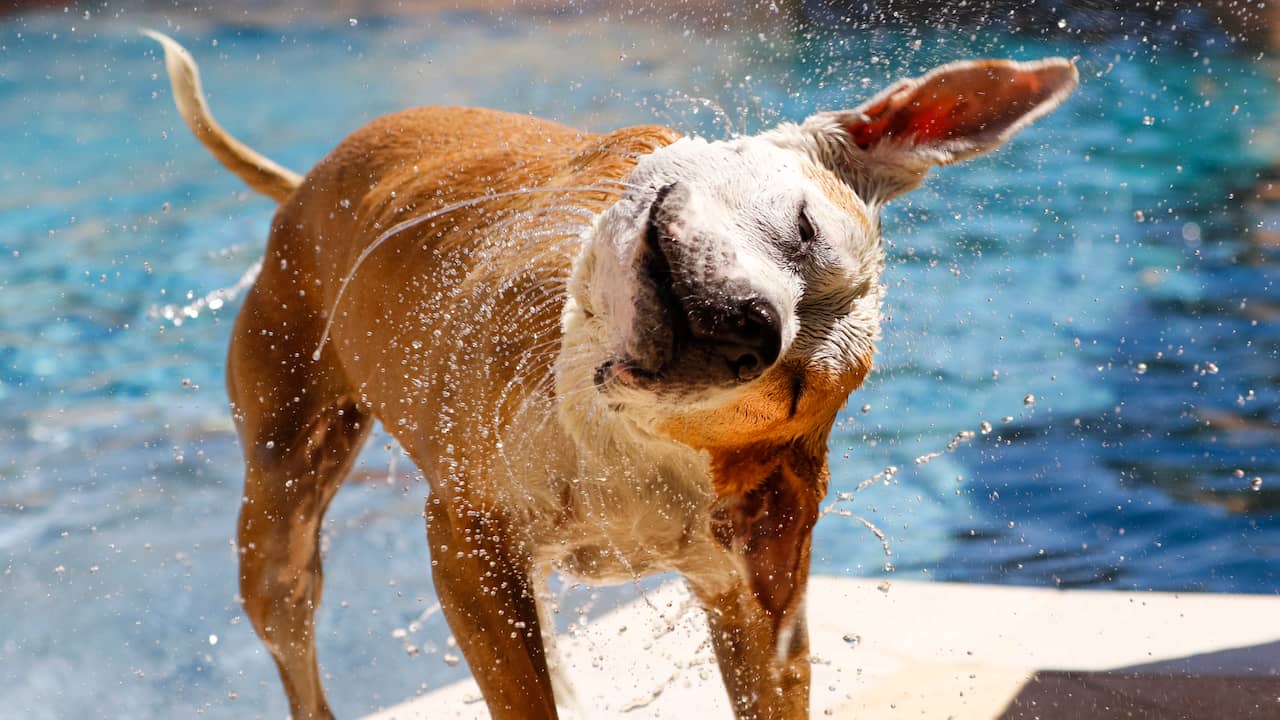17 jul 2022 om 10:41 | Update: 8 minuten geleden
This message first appeared on NU.nl in 2018. Since the claim is still going around on social media, we’ve updated and republished this piece.
–
Not only people have a hard time at temperatures above 30 degrees, dogs can also not tolerate heat. And if you see that your dog is panting enormously, you naturally want to make sure that he gets cooler again quickly.
–
It may seem like a good plan to then place a wet cold towel on your dog’s back. But according to reports on tipsenweetjes.nl and leeshetnu.nl, this is a very bad idea. It wouldn’t help your dog cool down at all and it could even be life-threatening for him. Fortunately, the latter turns out to be nonsense.
–
Where is it from?
The warning is not new. In recent years, too, there were regular warnings in the summer about the effect of wet, cold towels. It is unclear where exactly this advice comes from, but the oldest reports date from 2013.
–
Last month’s messages, from tipsenweetjes.nl and leeshetnu.nl, explain why the wet towel is said to be so dangerous. High temperatures make a dog’s blood thicker and more viscous, making it difficult for the heart to pump blood. A cold and wet towel would cause the dog’s blood vessels to constrict, making it even harder for the heart to function properly.
–
This would lead to organs receiving too little blood. And that could eventually mean the death of the dog.
–
Blood vessel story is unlikely
Is this really a big risk? And why do dogs have it so hard in hot weather? Veterinarian Jiske l’Ami, of the Faculty of Veterinary Medicine at Utrecht University, explains that normally panting is the most important way for a dog to cool down.
–
“The water on the tongue evaporates due to the air flowing past and thus cools the dog.” People also cool down by evaporation. We do this by sweating. But humans can sweat all over their bodies and dogs only evaporate moisture through the tongue and the mucous membranes in the mouth and nose. “That’s why dogs have a much harder time getting rid of their heat and are at a higher risk of overheating.”
–
Fortunately, you can help your dog cool down a bit. For example, a dog can also cool down by contact with a cold surface. In theory, a wet cold towel could also have a cooling effect.
–
––
However, towel is not recommended
L’Ami says it’s very unlikely that the dog’s blood vessels will constrict on contact with a wet towel. So you don’t have to worry about that. Still, she doesn’t recommend putting a wet towel on a dog to cool it down. “The danger of this method is that it makes very little sense. The towel heats up very quickly to the same temperature as the dog’s skin, then the dog does not cool down further.”
–
L’Ami says that it is therefore better to cool your dog with running water, such as the water from the garden hose. Once the water has absorbed the dog’s heat, the water on the dog’s skin is already replaced by new cool water. You can also let your dog walk through a ditch or river with running water. This also cools the dog down.
–
In addition, it is important to keep the dog in the shade as much as possible and to always have fresh drinking water available. And if the dog shows serious signs of overheating, such as drowsiness or poor responsiveness, it’s important to call the vet, according to L’Ami.
–
NU.nl is curious about your opinion about this article. Click here to complete a one minute questionnaire. Thank you very much!
–
–

